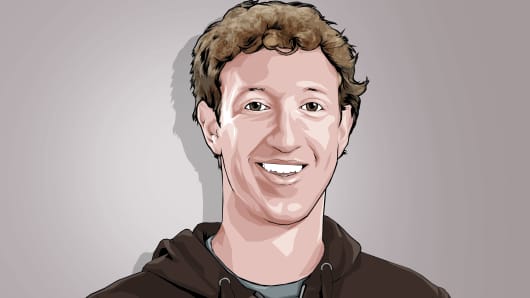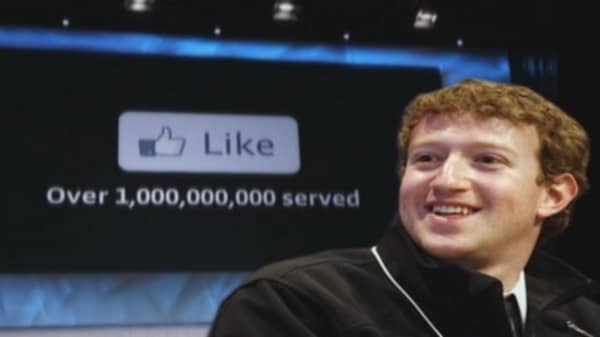Chairman and CEO, Facebook
Born: May 14, 1984, White Plains, N.Y.
Education: Computer science, Harvard University (dropped out)
Mark Zuckerberg makes our anniversary list of the 25 most transformative leaders, icons and rebels of the past quarter-century by epitomizing both the social media revolution and the new generation of Silicon Valley entrepreneurs.
Facebook is the dominant social network in most of the world outside Russia, China and Iran. As of the end of last year, it claimed more than 1 billion users globally: 351 million in Asia, 276 million in Europe, 199 million in North America and 362 million elsewhere. It has annual revenue of $7.9 billion and a market valuation of $150 billion. No company ever become as valuable in its first 10 years. Bloomberg estimates that 10 of the top 23 Silicon Valley billionaires are Facebook co-founders, executives or investors.









































